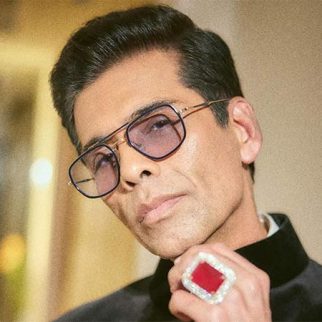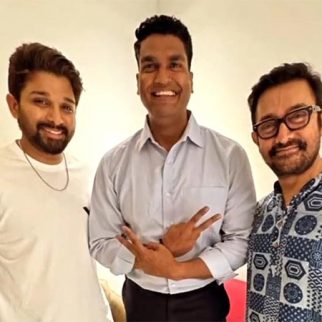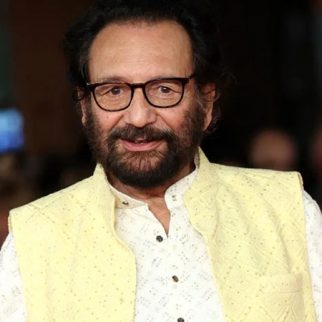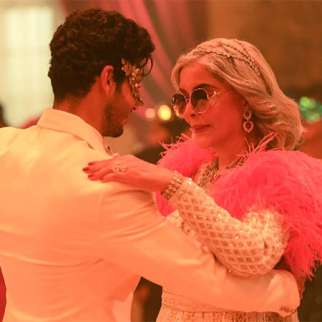
Sharmila Tagore tells RISHI MAJUMDER why the censor board is not running a popularity contest
Sharmila Tagore completes her tenure with the Central Board of Film Certification (CBFC) on 5 February. But she has been requested to stay on till the CBFC finds a suitable successor. During Tagore's tenure, the CBFC has come into conflict with a radically changing film industry. Scenes have been cut, adult certificates doled out, and some films denied certification altogether. At her home in Vasant Vihar in New Delhi, the 64-year-old sits relaxed against a cushy sofa. Rugs line the floor. The walls are covered with art and family photographs. She sips a cup of tea as TEHELKA brings up the criticism levelled against her as chairperson of the CBFC. "I have been misquoted in the papers," she says. "But we have to put our side there as well." And she begins to reply - adamant at times, but never losing that calm. Edited excerpts:
The documentary Inshallah Football has been awarded an A certificate for a scene where a former militant spoke about being tortured. Now its main markets - TV broadcasting, satellite channels, cable and DTH are closed. No distributor will pick it up. Isn't this a virtual ban?
The CBFC is not familiar with the exhibition process of documentary films. The producer was invited to a meeting for his point of view but he didn't come, citing personal reasons. This film, with that scene, had to be given an A. The producer can easily delete that scene if he wants to and get a U/A certificate. This is precisely why the 15-plus category that we've been talking about is so important. Most people don't understand the U/A category. We're planning to issue ads to make people understand this.
Should separate guidelines be formulated for documentary films?
Maybe. But making these guidelines isn't the CBFC's job. The CBFC can only suggest it to the Ministry of Information and Broadcasting, as any director can.
The CBFC is governed by a 1952 Act. What changes are due?
We have suggested a 15-plus category for teenagers because we feel there is a difference between a 12-year-old and a 15-year-old. At 15, they're far more mature - and they can deal with a more adult film.
With the free access that Internet and television provide today, how is film censorship relevant?
That's an important question but I can only see it from the other end. Why do people still want their films to be certified? Why don't they just go online and show it. I see films as the kind of entertainment you enjoy in the hall with everyone else. This has a different impact from watching it alone - online or on television. Censorship for this is important and relevant - and that's why the debate is on. Every democracy, except maybe Sweden, has a form of censorship. In most democracies, the board of certification is controlled by their film industry. Whereas in India, in the absence of one cohesive film body, the certification guidelines are formed by the government.
What's your objection to film titles like Yeh Saali Zindagi and Kaminey?
Yeh Saali Zindagi means 'life is a bitch'. In a dialogue, the impact is different. But here, it's the title of a film. You keep saying, "Yeh Saali Zindagi ka ticket le ke aao; Yeh Saali Zindagi kaisi hai?" You're giving it currency. People, even in the same house, have different perceptions. I think this imposes a social responsibility on all of us. Not vis-Ã -vis Sweden or Australia or America - but vis-Ã -vis India. There is the view that people become insensitive to such words with usage. But the idea is not to become insensitive. The idea is to engage with the film, not become passive recipients. The idea is to be media literate, which is better than censorship.
How does the CBFC sit on judgement on the politics of a film?
We denied a certificate to a film called Aamchi Mumbai because it said Maharashtra is only for Maharashtrians, which went against our Constitution. It portrayed Gujaratis and Punjabis as exploiters of Mumbai - the only good guy was a Maharashtrian who sometimes resorted to violence to fight these 'exploiters'. We called in Chitra Palekar as an adviser, and she agreed with us. Finally, it went to the Film Certification Appellate Tribunal (FCAT), which asked for cuts - and the producer agreed. In Parzania, we cut a few scenes where a political party's name was mentioned. In Jai Bolo Telangana, there was a scene in which a student from Telangana was seen self-immolating, which we made shorter. We deleted two lines of dialogue: "Are you A (Andhra Pradesh) or T (Telangana)," and "Unless Telangana comes, we won't get jobs." The film was neither fact nor fiction - and it had the potential for creating law and order problems and offending people. So we had to be careful.
What sort of law and order problems?
One is spontaneous, which I haven't seen in my tenure. The other is the kind engineered by groups that want visibility like with The Da Vinci Code, Jodhaa Akbar and Fanaa.
But this means that such moral police can affect the decisions of the CBFC. Can they?
No. Let me clarify. No one can pressurise the certification process. Neither the moral police nor the ministry.
Do political parties influence this process of certification?
We have a set of panel members each in nine regions, from various walks of life - homemakers, journalists, doctors, politicians, dancers and singers. They decide the certification of a film, which the ministry can't overturn. The list of panel members is issued by the Ministry of Information and Broadcasting. I have heard of politicians calling and asking for people to be included in a panel. But during my tenure, I have not seen people with party affiliations exercising this power. No other organisation is exposed to the differences in Indian perception more than the CBFC - between urban and rural sentimentality. Every individual clamours for certification that suits their norms. But we have to issue one certificate for the whole of India. We follow the yardstick of a common sensibility, a yardstick the Supreme Court laid down in the case of Ore Oru Gramathile (a 1988 Tamil film that dealt with reservation). From a feudal society to a consumer one, we've exploded, not evolved. We try to take as many people as we can - the majority - along. But we can't always be popular. A producer still has the prerogative of asking for a review committee, which is set up within two days, and to further appeal to the FCAT.
What government pressures operate where the board is concerned?
Early in my tenure, I was told by an officer working with me that the release of a particular film needs to be postponed. But I spoke to the person and said if this film is released, rather than stalling it and creating a controversy, it will just come and go - so it was released. Another film - one stuck for 13 years - had to do with Rajiv Gandhi's assassination. Look, we are an arm of the Ministry of Information and Broadcasting. Let's say you are the minister. You have come to know that a film can be problematic and the message comes to us. The CBFC's role then is to assess it and give our opinion.
Prakash Jha reportedly said Raajneeti was given an A certificate due to the pressure from the Congress and the Gandhi family.
That's really not true. The CBFC gave him an A rating because it felt there were two very intimate scenes and he was asked to cut a dialogue that said, "All women politicians have to sleep with someone to get a ticket." He went to a reviewing committee and to the FCAT. Here, he finally agreed to some cuts, I think, before releasing his film as U/A.
BOLLYWOOD NEWS - LIVE UPDATES
Catch us for latest Bollywood News, New Bollywood Movies update, Box office collection, New Movies Release , Bollywood News Hindi, Entertainment News, Bollywood Live News Today & Upcoming Movies 2025 and stay updated with latest hindi movies only on Bollywood Hungama.









